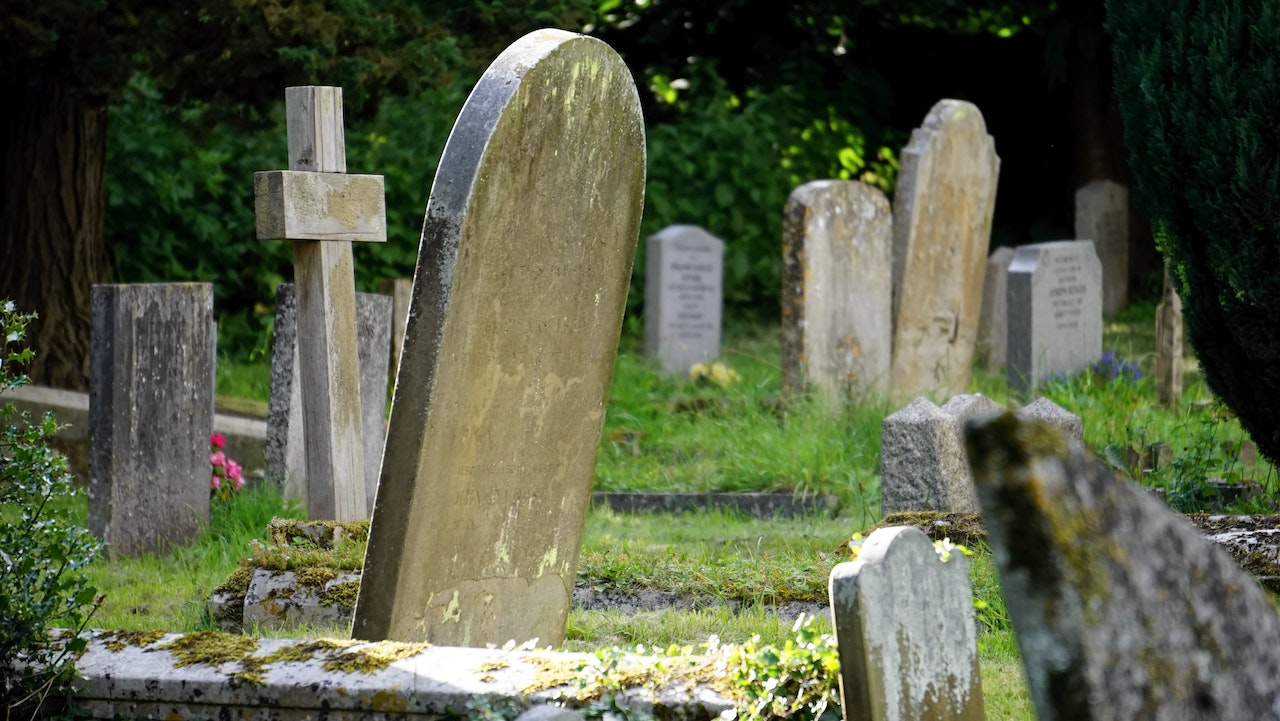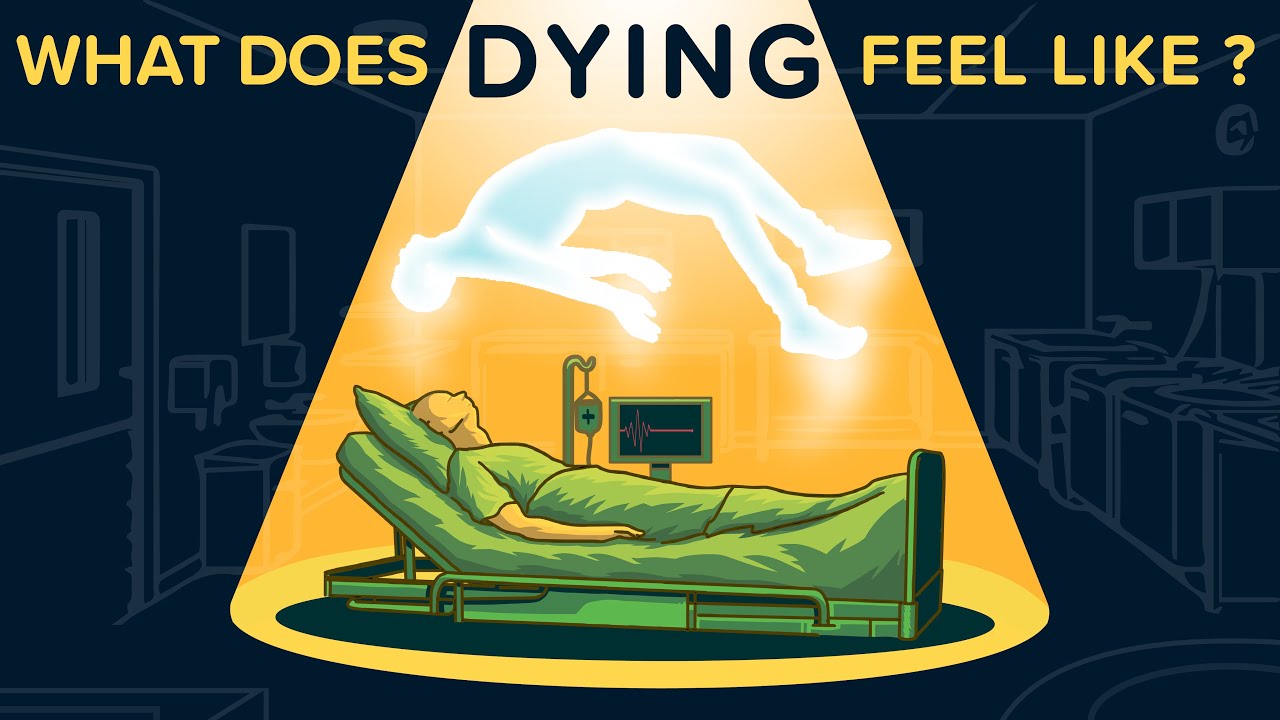What Does Death Feel Like? Exploring The Unfathomable
Death is one of the most profound mysteries of human existence. It's a topic that elicits a lot of curiosity and fear. The idea of the unknown is terrifying, and death is the ultimate unknown. As a result, many people wonder what does death feel like. Keep reading the article to know the answer in detail.
Author:Evelyn AdamsReviewer:Calvin PenwellMar 08, 202412 Shares12.3K Views

Death is one of the most profound mysteries of human existence. It's a topic that elicits a lot of curiosity and fear. The idea of the unknown is terrifying, and death is the ultimate unknown. As a result, many people wonder what does death feel like. Keep reading the article to know the answer in detail.
The Physical Experience Of Dying
What happens to the body during the dying process? It's a question that scientists have been trying to answer for decades. While the dying process varies from person to person, there are some common physical changes that occur.
One of the first signsof the dying process is a slowing of the heart rate. As the body begins to shut down, the heart doesn't have to work as hard to circulate blood, so the heart rate slows.
Breathing also becomes more difficult as the lungs start to fail. The body's oxygen supply decreases, and carbon dioxide levels increase, leading to a feeling of suffocation.
As the body continues to shut down, the skin may become discolored, and the extremities may feel cold. The dying person may experience confusion, restlessness, and agitation. In some cases, the dying person may even become comatose.
The Emotional Experience Of Dying
In addition to physical changes, there are also emotional changes that occur during the dying process. For some people, there is a sense of peace and acceptance. They may feel a spiritual connection or a sense of transcendence.
For others, there is fear, anxiety, and a sense of loss. The dying person may experience feelings of regret, sadness, and a sense of being unprepared for what is to come.
What Does Death Feel Like?
So, what does death feel like? The truth is that we don't know for sure. Death is a deeply personal experience, and what one person experiences may be very different from what another person experiences. However, based on the accounts of those who have had NDEs and the experiences of those who are dying, we can make some educated guesses.
For many people, death is a peaceful and transcendent experience. They may feel a sense of love, acceptance, and connection to something greater than themselves. For others, death is a painful and frightening experience. They may feel overwhelmed by fear, regret, and a sense of loss.
Coping With Death
Death is a natural part of the human experience, but that doesn't make it any easier to cope with. For those who are facing their own mortality or the death of a loved one, there are things that can be done to make the experience less traumatic.
One of the most important things is to talk about death. Many people avoid discussing death because it's uncomfortable or frightening. However, talking about death can help to alleviate anxiety and fear. It can also help to ensure that end-of-life wishes are respected.
It's also important to seek support from family, friends, or a counselor. Grieving is a process, and it's important to have a support system in place to help cope with the emotions that come with death.
For those who are facing their own mortality, it's important to think about end-of-life wishes. This may include creating a living will, discussing funeral arrangements, and communicating any desires regarding life-prolonging measures.
Death And Existentialism
Existentialism is a philosophical movement that focuses on the individual's search for meaning and purpose in a seemingly meaningless world. Death plays a central role in existentialist philosophy, as it is seen as the ultimate end and the only certainty in life.
According to existentialist thinkers such as Jean-Paul Sartre and Martin Heidegger, it is only in the face of death that we truly confront the reality of our existence and are forced to question the meaning of our lives.
For existentialists, death is not simply an event that happens to us, but an essential part of our being. It is only by acknowledging our own mortality that we can fully embrace the present moment and make the most of the time we have.
This means facing the fear of death head-on and living authentically, without the distractions and illusions that often keep us from fully engaging with life.
Death Anxiety
Death anxiety is a common human experience that refers to the fear of death and dying. It can manifest in a variety of ways, including panic attacks, depression, and avoidance behaviors. For many people, death anxiety is rooted in the fear of the unknown and the fear of losing control or autonomy.
While death anxiety is a normal and natural response to the prospect of death, it can also have a significant impact on an individual's quality of life. It can lead to feelings of isolation, despair, and a sense of meaninglessness.
It can also make it difficult for individuals to engage with life fully and meaningfully, as they may be preoccupied with thoughts and fears about death.
There are many ways to cope with death anxiety, including seeking professional help, talking to loved ones, and engaging in spiritual or religious practices. Mindfulness and meditation can also be helpful in managing feelings of anxiety and fear.
The Death Positive Movement
The death positive movement is a cultural and social movement that seeks to challenge the taboo surrounding death and dying in modern society.
Its advocates believe that by embracing death as a natural part of life, we can reduce fear and anxiety around the dying process and promote greater acceptance and understanding.
The death-positive movement emphasizes the importance of open and honest discussions about death and dying, as well as the need for greater access to palliative and hospice care. It also encourages alternative approaches to funerals and burials, such as natural burials and green funerals.
The death-positive movement has gained significant traction in recent years, with a growing number of individuals and organizations promoting its message. By encouraging a more positive and accepting attitude towards death and dying, the movement seeks to help people live more fully and meaningfully in the time they have.
The Role Of Hospice Care
Hospice care is a specialized form of medical care that is designed to support patients who are nearing the end of life. Its primary goal is to provide comfort and relief from pain and other symptoms, as well as emotional and spiritual support for patients and their families.
Hospice care is typically provided by a team of healthcare professionals, including doctors, nurses, social workers, and chaplains. The focus is on improving the quality of life for patients and their families, rather than on curing the underlying illness.
The role of hospice care is to help patients and their families navigate the challenges of the dying process with dignity and compassion. This may include providing pain management, counseling, and assistance with daily tasks. Hospice care can also help to facilitate discussions about end-of-life wishes and funeral arrangements.

What Does DYING Feel Like?
The Science Of Death
The science of death is a branch of biology that focuses on the physical and chemical changes that occur in the body during the dying process. It is a complex and multifaceted field that encompasses a wide range of topics, including cellular and molecular biology, neurobiology, and physiology.
One of the key areas of research in the science of death is understanding the biological mechanisms that underlie the dying process. This includes studying the cellular and molecular changes that occur in the body as it begins to shut down, as well as the impact of various disease processes on the dying process.
Other areas of research in the science of death include studying the physiological changes that occur in the brain during the dying process, as well as the psychological and emotional experiences of those who are dying.
People Also Ask
Can You Feel Pain During The Dying Process?
It is not uncommon for patients to experience pain during the dying process, but hospice care can help to manage this pain.
What Is A Natural Burial?
A natural burial is a type of burial that emphasizes environmental sustainability and the use of biodegradable materials.
How Does The Brain Experience Death?
There is still much that is not understood about the experience of death in the brain, but research suggests that the brain may continue to function for a brief period after clinical death.
What Is A Death Doula?
A death doula is a trained professional who provides emotional and practical support to individuals and their families during the dying process.
Can Children Benefit From Hospice Care?
Yes, hospice care can be beneficial for children and their families, providing comfort and support during difficult times.
Conclusion
The experience of death is a profound and mysterious phenomenon. While we can make some educated guesses about what it feels like based on the experiences of those who are dying and those who have had NDEs, the truth is that we don't know for sure.
So, what does death feel like? Perhaps the most accurate answer is that it feels different for everyone. It's a deeply personal experience that is impossible to fully understand until we experience it ourselves.
However, by exploring the concept of death and discussing it openly, we can begin to demystify this mysterious phenomenon and come to a greater understanding of what it means to be alive.

Evelyn Adams
Author
Evelyn Adams is a dedicated writer at Kansas Press, with a passion for exploring the mystical and uncovering hidden meanings.
Evelyn brings a wealth of knowledge and expertise to her insightful articles. Her work reflects a commitment to providing accurate information, thoughtful analyses, and engaging narratives that empower readers to delve into the mysteries of the universe.
Through her contributions, Evelyn aims to inspire curiosity, spark imagination, and foster a deeper understanding of the supernatural world.

Calvin Penwell
Reviewer
Since diving into numerology in 1997, my path has been marked by extraordinary encounters and insights. A pivotal moment was uncovering a forgotten numerological manuscript in a tucked-away Italian library, which deepened my connection to the ancient wisdom of numbers. Another transformative experience was a meditation retreat in Nepal's tranquil mountains, where I honed my intuition and the art of interpreting numerical vibrations.
These adventures have not only enriched my numerological practice but also my ability to guide others towards understanding their destiny and life's purpose. My approach is deeply personal, rooted in a blend of historical knowledge and intuitive insight, aimed at helping individuals find their alignment with the universe's abundant energies. My mission is simple: to share the power of numerology in illuminating paths to abundance and fulfillment.
Latest Articles
Popular Articles
